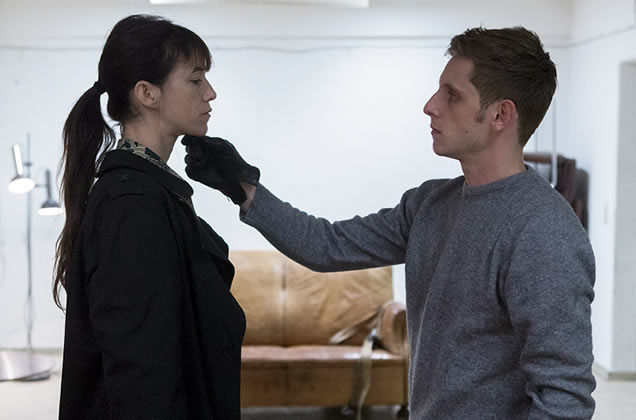Just like the auteur that he likes to think of himself as being, Nymphomaniac Vols I+II director Lars von Trier is already whining on about how he does not approve of the release of his film being cut into two volumes, and that the only way to ‘appreciate’ his work completely is to watch his five-and-a-quarter hours version, which will be receiving its first showing at the 64th Berlin International Film Festival this year. Those lucky festival-goers.
The film is the final part of Trier’s self-titled ‘Trilogy of Depression’, preceded by Antichrist (2009) and Melancholia (2011), both of which also star Charlotte Gainsbourg.
Depressing it most certainly is; and not, unfortunately, impressively so. It’s a funny thing, but I have never watched any von Trier film more than once, and once for Nymphomaniac, both volumes, will certainly suffice for this reviewer. Their combination of utter misery, depravity and frequent misogyny negates the fact the both are, in places, quite brilliantly made, in much the same way as Trier’s Antichrist and Breaking the Waves (1996) pushed the boundaries of what anyone could be expected to take from a film.
But Mr. von Trier, provocation does not art make.
The story centres on Joe (Gainsbourg), a 50-something attractive woman whom Spigelman (Stellan Skarsgård) finds badly beaten up in an alleyway. He brings her home to his flat, where he cares for her while asking her about her life. Joe proceeds to tell him over eight chapters (yes, it’s a Lars von Trier film) how, as a self-diagnosed nymphomaniac, she ended up in the alley. Seligman, himself a self-confessed assexual virgin, has read many books, from which he has acquired a deep historical general knowledge, but not of life, and he connects the stories the Joe is telling him with what he has read about. The story is thus divided into two volumes – Volume I follows young Joe as portrayed by Stacy Martin, while the older Joe in Seligman’s apartment is played by Charlotte Gainsbourg, and Volume II follows Joe as portrayed completely by Gainsbourg.
Realizing from a very young age her interest in carnality, close to her loving father (Christian Slater) but distant from her cold mother (Connie Nielson), Joe proceeds to lose her virginity young (aged 15) to Jerôme (Shia LaBeouf younger, Michaël Pas older) in an encounter that is not very satisfying for Joe. Her enjoyment of sex is set to grow hugely, however, when she and her best friend B (Sophie Kennedy Clark) decide to reject all of society’s notions of love in order to pursue nothing else but lust. However, when B realizes that she now believes love to be an integral part of the best sex, Joe rejects her and sets out on her own path which leads her, inevitably, back to Jerôme and far, far beyond…
It’s rather like how shocking you may find the use of the ‘C’ word, quite frankly – in setting out to show us at all costs and repeatedly what has never before been portrayed in mainstream cinema, Trier has unfortunately neglected to offer any real emotional involvement with any of his characters, not even with Joe.
Thus, the film emerges as little more than a cold, uninvolving ‘What the Butler Saw’ style experience, the most striking part of which is when the betrayed wife of one of Joe’s conquests, Mrs H (a brilliant Uma Thurman), arrives at Joe’s apartment with her three young boys in tow to explain how things are going to be different for them all now, to show them ‘Daddy’s favourite place’ (Joe’s bed), and to ask Joe how she believes she will cope with loneliness. An utterly mute Joe watches with, presumably, the same level of cringing, embarrassed horror that you feel as a spectator to this car-crash cinema, which the remainder of the film strives but never manages to duplicate.
And, again this being von Trier, those expecting a happy ending will be sorely disappointed but, again, Spigelman’s final revelation simply did not ring true.
I know you will all watch it, and am not saying you shouldn’t but, whether you go for prurient or philosophical purposes, I am afraid you will be leaving as unsatisfied as Joe.
245 mins.
For more quality film reviews, go to Picturenose.com







